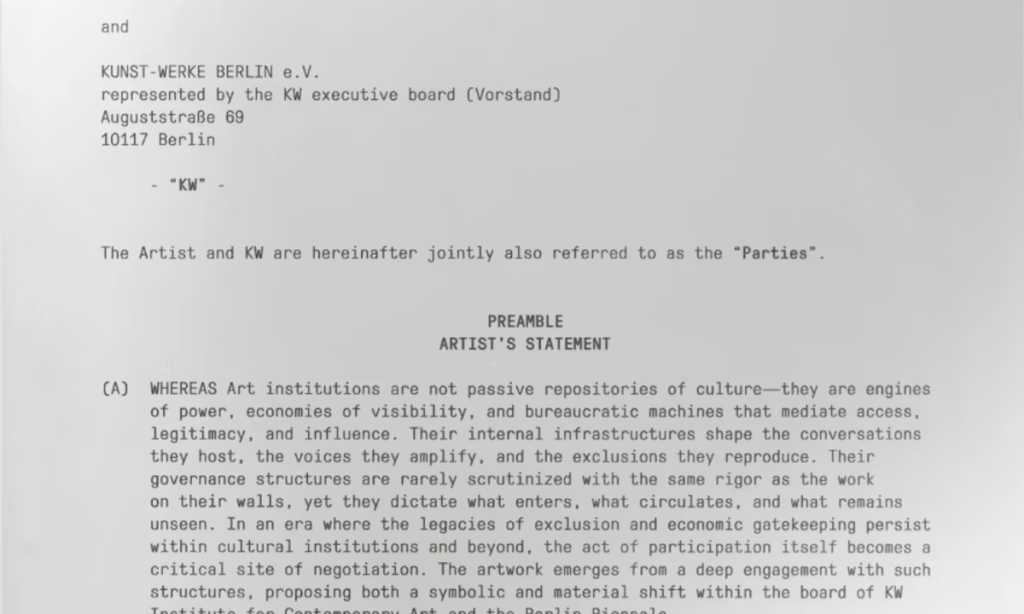The KW Institute of Contemporary Art in Berlin has appointed the curator and academic Mi You to its board following the sale of Sung Tieu’s work Declaration of Donation (2025). As per the work’s own instructions, it was sold for €25,000, covering the cost of a five-year term for You, who was nominated by Tieu to the position.
Tieu’s work consists of a contract engraved onto four A4-sized mirrors. It harshly criticises KW’s board structure, which charges a €5,000 yearly fee from each member. The fee is a key revenue stream for the institute, already under pressure as Berlin cuts arts funding, but also hampers diversity in the management of the city’s cultural institutions, in which “legacies of exclusion and economic gatekeeping” persist.
The contract states how the piece’s sale would leverage funds from the private art market to diversify KW’s board, declaring that “institutions evolve not through declarations of inclusivity but through shifts in infrastructure”.
“We are grateful to Sung for this provocation,” says KW’s director Emma Enderby.
You is a curator and professor of art and economics and the University of Kassel. Her curatorial work explores the social, political and economic networks behind art.
Tieu, who will represent Germany at the 2026 Venice Biennale, created the piece for her exhibition 1992, 2025 at KW earlier this year, which was curated by Leon Kruijswijk.
It hung alongside similar pieces about Tieu’s exclusion from a memorial design competition for Nguyễn Văn Tú, a contract worker from Vietnam who came to East Berlin in 1987 and was murdered by far-right groups in 1992. In 2023, Tieu was invited to participate in the competition, but after criticising the lack of involvement of the Vietnamese community, she was ultimately disqualified by the jury by violating the competition’s terms—leaving the Vietnamese community completely excluded from the process.
Tieu’s practice uses archival and textual material to unpack the place of Vietnamese people in Germany, particularly in connection with the GDR, which brought 60,000 Vietnamese contract workers from “brotherly states” like Vietnam to fill labour shortages, but denied them full rights.
